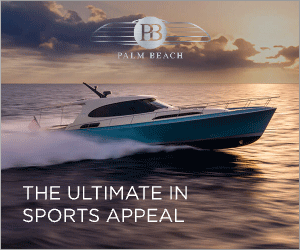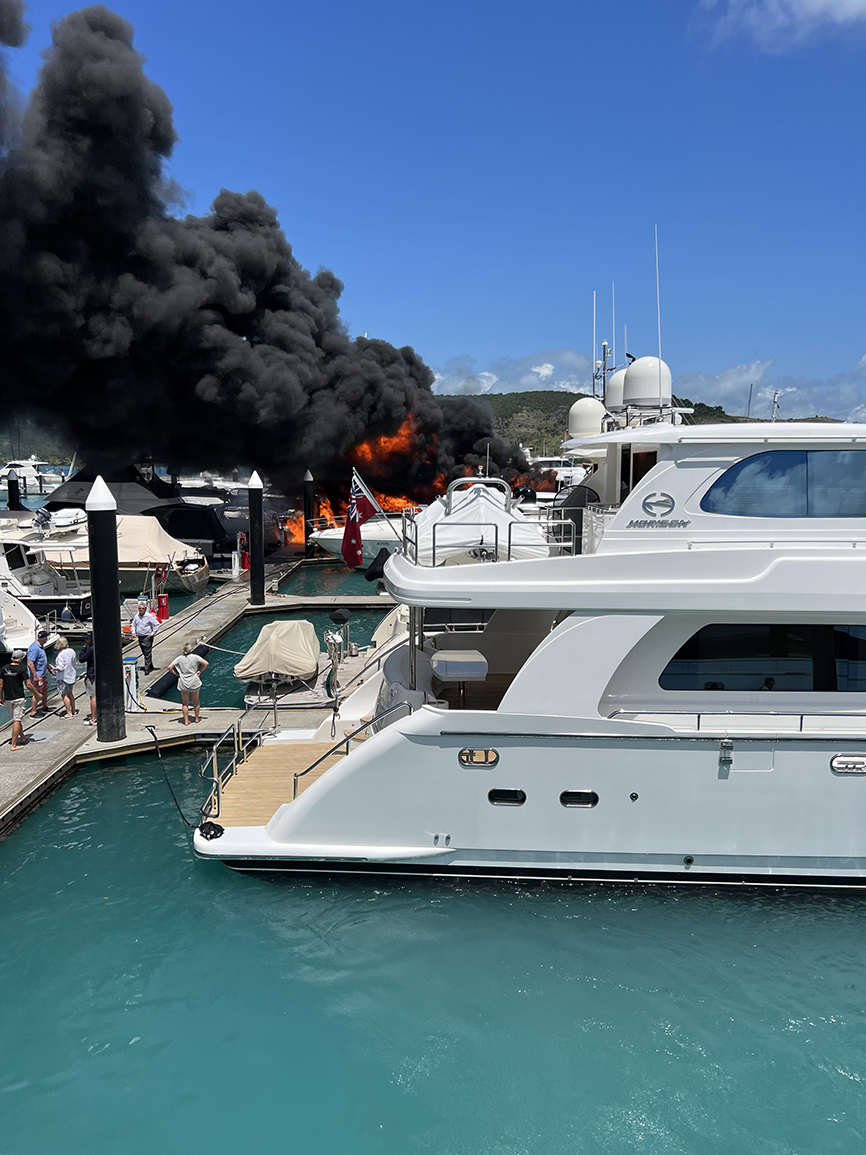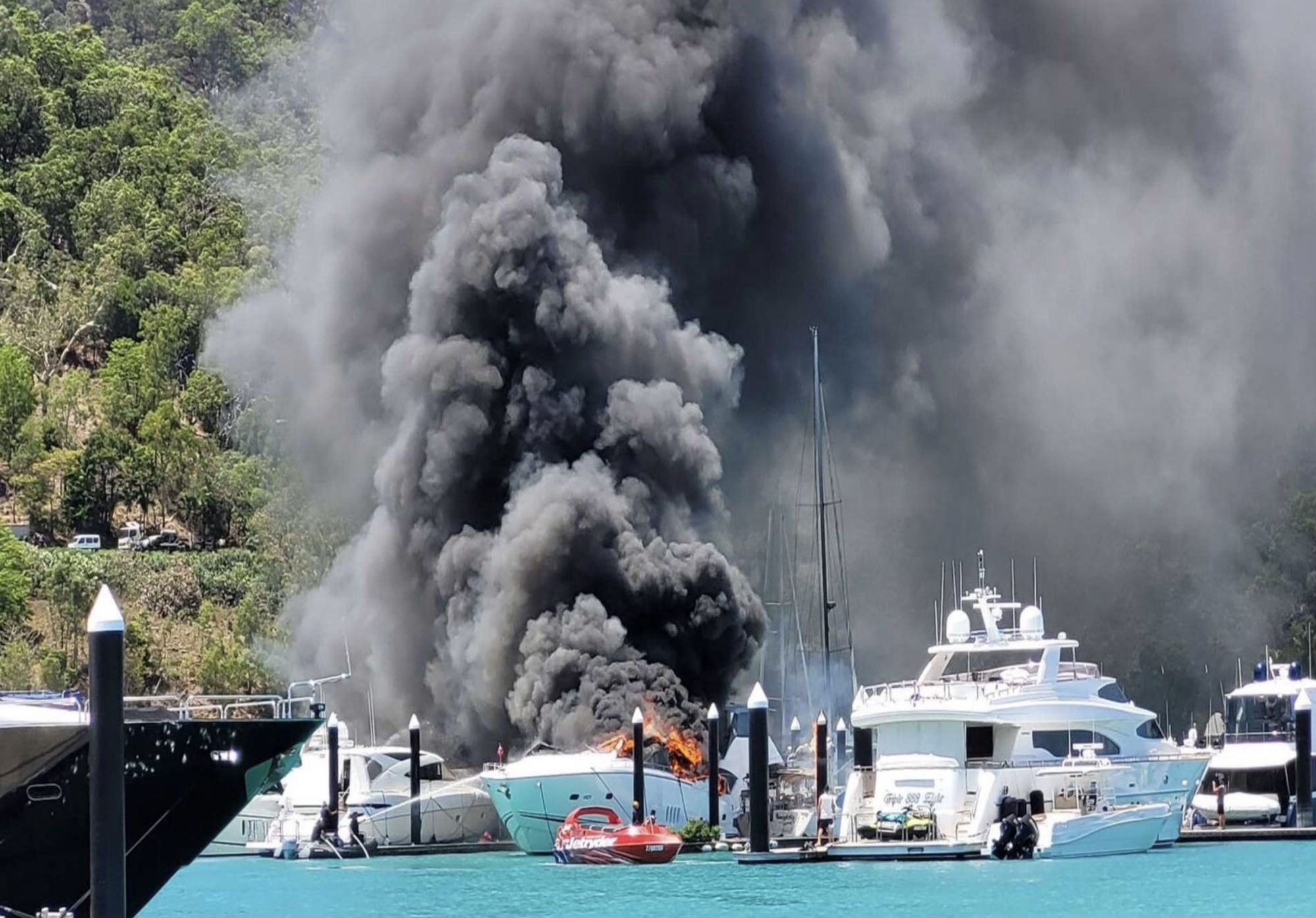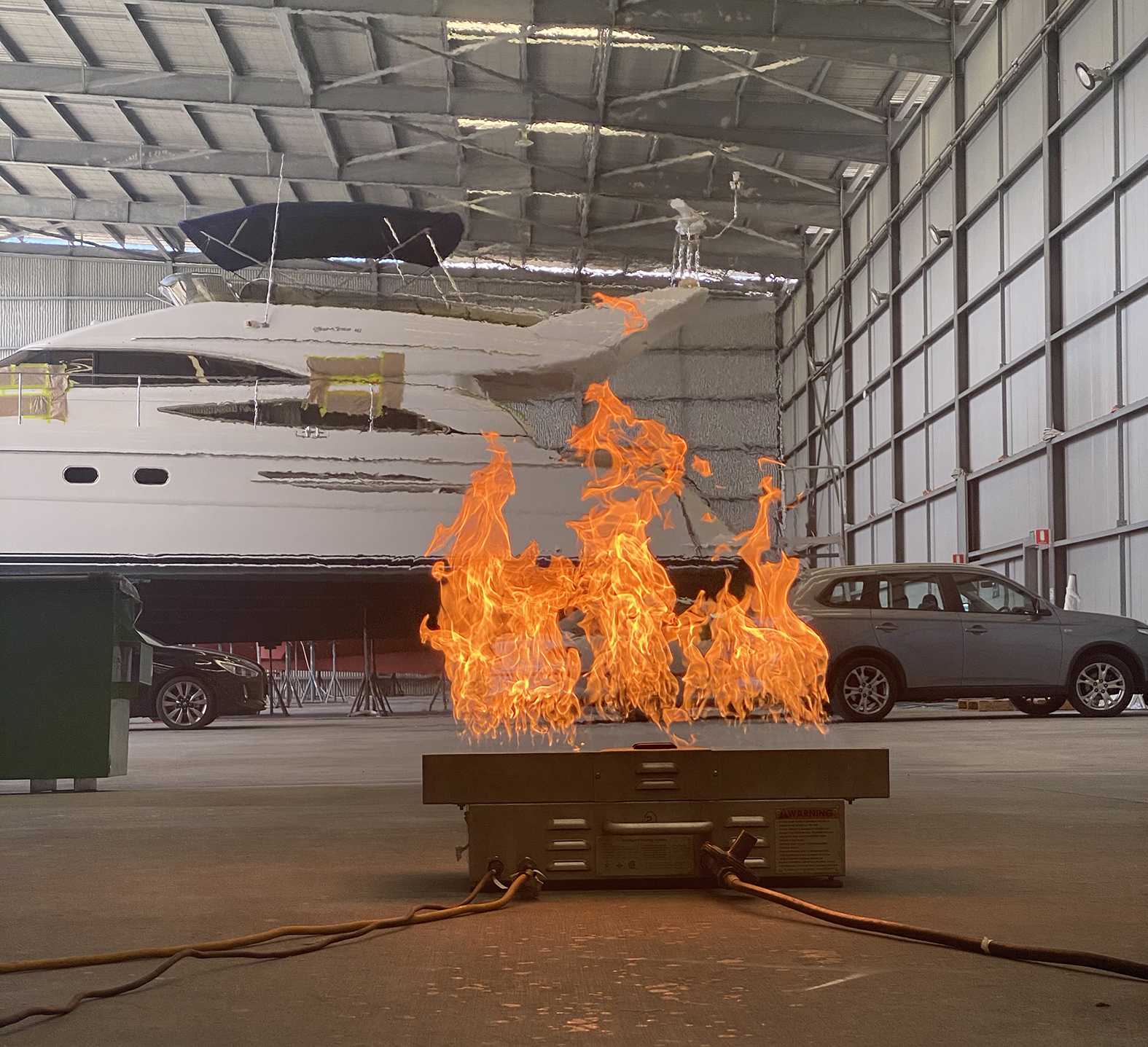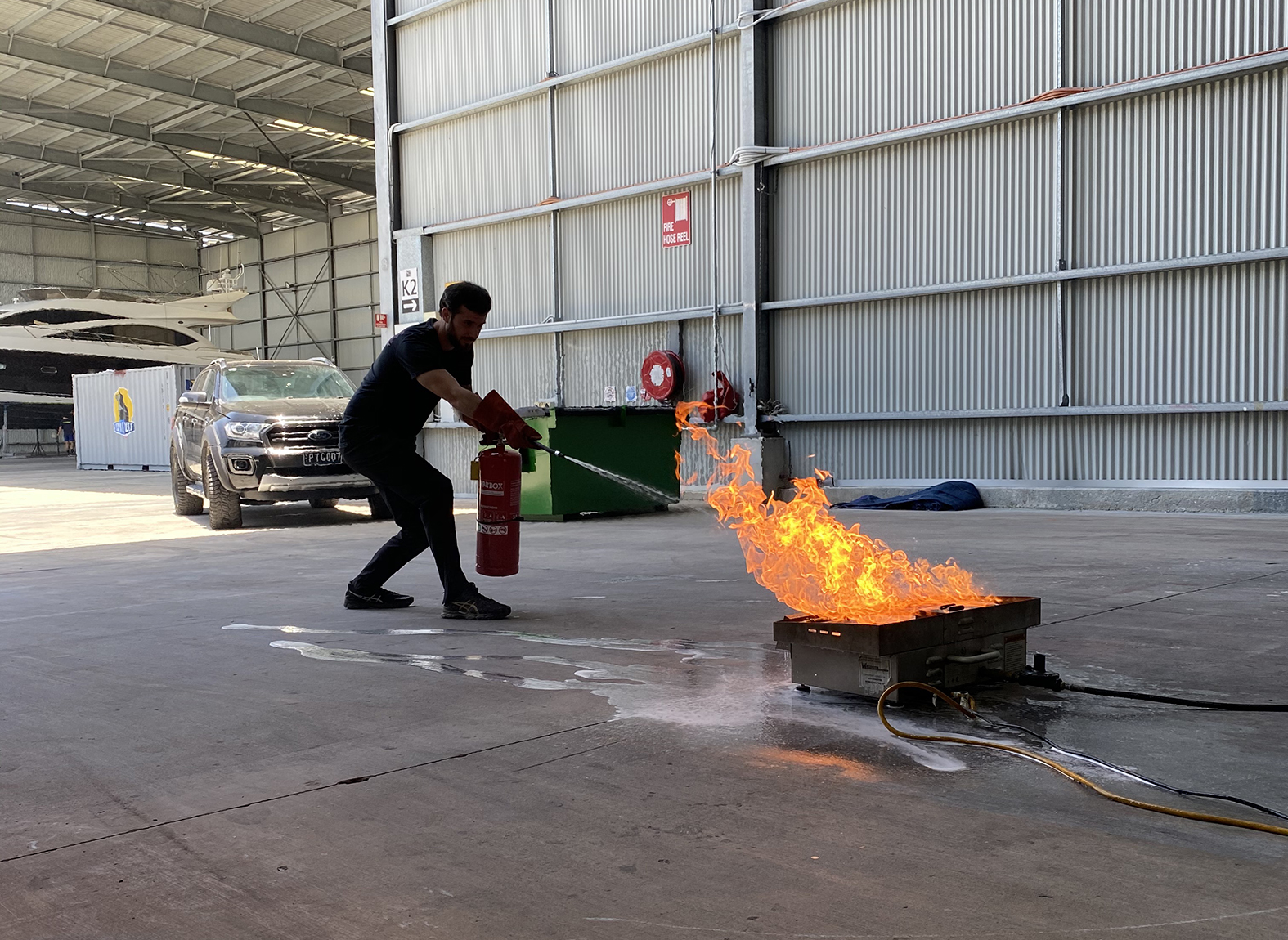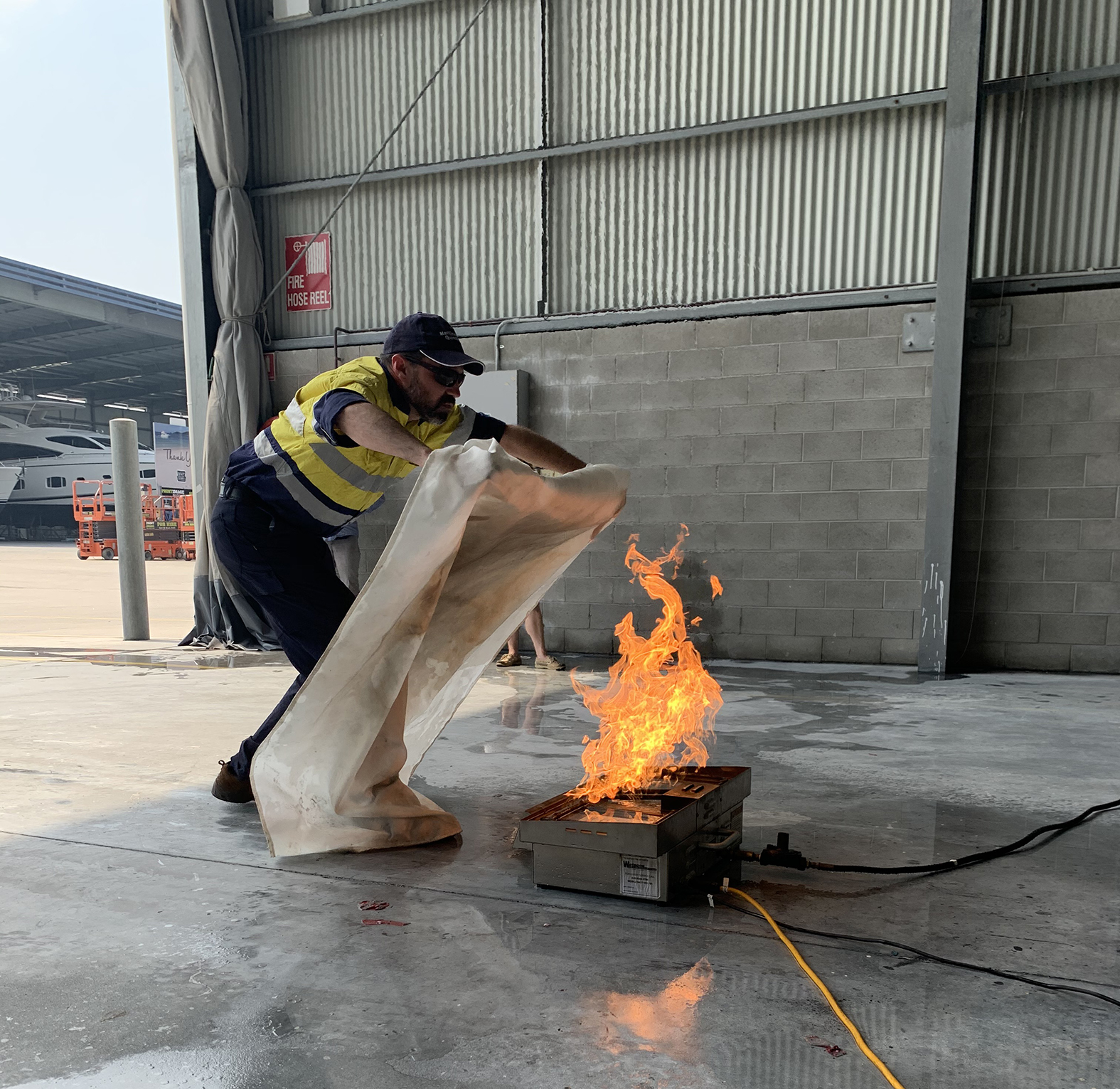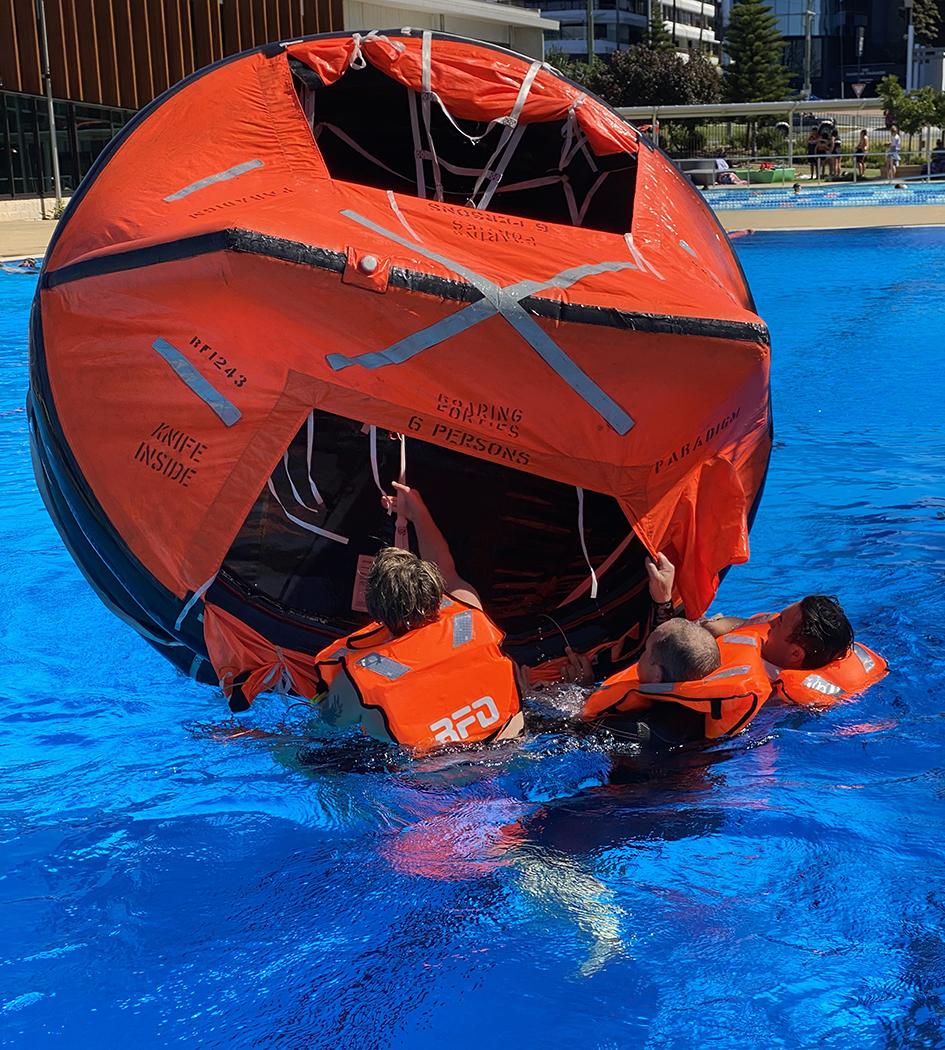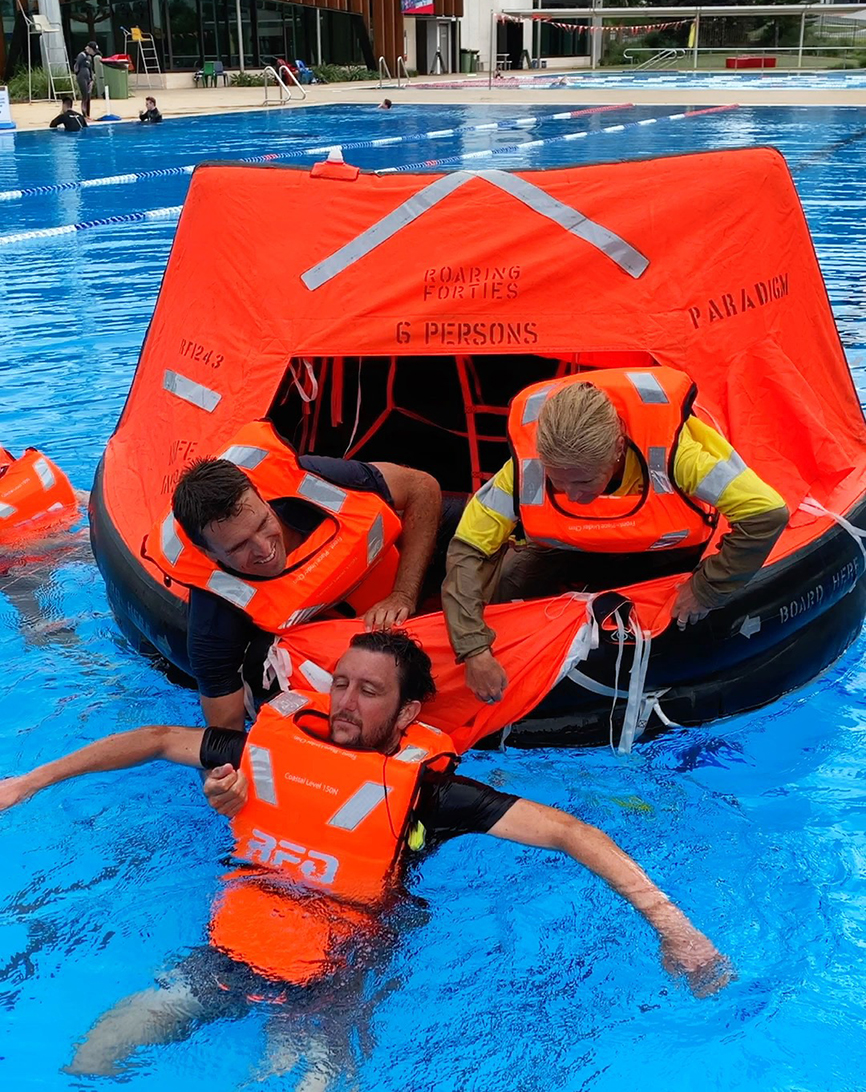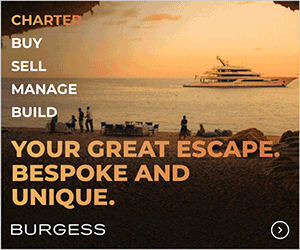Fire fight
Queensland Fire & Emergency crew and marina staff were quick to respond to a luxury motor yacht ablaze at Hamilton Island Marina, putting other vessels in danger and forcing owners to scramble to get their vessels out.
Written by Jeni Bone
Photography by Paradigm Training
26 October 2022
Hamilton Island Marina was the scene of a dramatic blaze aboard 25-metre Sunseeker 82 Time Out, which caught fire around 10.30 am on Monday 24 October, activating yacht owners, marina staff and the island fire service.
Nobody was injured in the incident and the cause of the fire has not yet been revealed.
Craig Maile, Service Manager at Horizon Yacht Australia was on the marina with Horizon Yacht Australia Director, Mark Western conducting a handover to a client of the new Horizon E75, Bellagio, when he noticed smoke bellowing from the aft section of Time Out.
As he recounts, “We had arrived about 45 minutes earlier and were preparing to leave the marina when we saw smoke and thought it was aboard the other Horizon at the marina.
“I ran to that vessel, which was in the next pen to the boat on fire and spoke with the crew who were on the marina requesting assistance. By that time the fire was raging.
“The forward windscreen on Time Out blew out and flames could be seen at the front of the vessel. I got on board the Horizon, got it going and drove it out hard. The fire had already melted the breezeway on our boat. The fire was like a flamethrower. Another minute and we would have gone up!”
According to Craig, marina staff were quick to coordinate boundary cooling, which involves protecting surrounding vessels from the fire with fire extinguishers. “But they only have half-inch hoses,” observes Craig.
“The fire brigade was there within minutes with high-pressure hoses and pumps, and there was a barge with a pump and hose working on the flames at the front of the vessel.”
Emergency service crews continued to work the rest of the day to extinguish the fire. It wasn’t until 3 pm that the fire crew were able to get aboard to open spaces where gas can build up to ensure it didn’t reignite.
According to reports, the vessel sank at around 7 pm. It will be salvaged ahead of a full investigation into the cause of the fire.
“It was very lucky we were there,” says a rattled but well-trained Craig, who spent 10 years crewing superyachts in the Med where fire prevention and response drills were a mandatory part of crew training.
“It’s imperative for owners and crew to act on a fire as soon as it’s detected with a fire extinguisher and hoses. By the time you’re asking for assistance from marina staff and calling for fire service, it can be too late.”
For commercial operators, AMSA regulations demand crew are qualified in fire and emergency procedures and that they undertake regular drills. There’s a very different set of rules for private owners compared to commercial vessels, as Julianne Zalite, Director and CEO at Paradigm Training Group explains.
“The commercial industry is highly regulated. They carry out regular drills and update their crew training and AMSA checks their books to make sure they’re up to date.
“There is no requirement for owners of privately owned vessels to have more than a boat licence and those requirements are overseen by MSQ in Queensland,” she continues.
“Recreational boat licences are mainly about the operation of your vessel with some basic safety topics. Many private owners who travel offshore make sure their captains and crew hold commercial qualifications, so they’re better trained and for their insurance. There are boat brands, such as Riviera, who offer owners supplementary training, but it is optional.”
For owners considering acquiring fire and emergency training to deal with onboard incidents, Julianne recommends getting in touch with a reputable Registered Training Organisation (RTO) and booking in for marine emergency response training.
“They can contact an accredited training company, specialising in fire prevention training and emergency response training to a commercial standard,” she says.
“The core subjects for every maritime qualification include fire prevention, what to do in an emergency, life raft deployment, as well as work, health and safety which includes information on the storage of hazardous substances like fuel and cleaning agents.
“We can tailor particular units from a Coxswain course that any recreational owner can undertake. It certainly would give owners peace of mind that they know what to do in situations that can be life-threatening.”
msq.qld.gov.au/safety
nsw.gov.au/safety-equipment-checklist
transportsafety.vic.gov.au/maritime-safety


